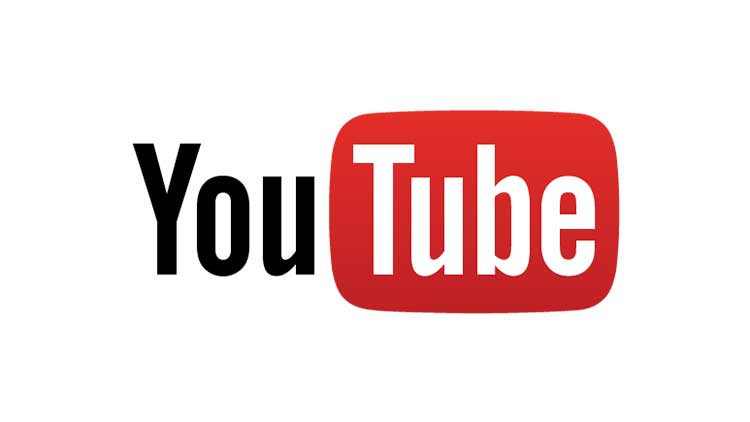YouTube Paying $170M Fine to Settle Kids Privacy Complaint

The smarter way to stay on top of broadcasting and cable industry. Sign up below
You are now subscribed
Your newsletter sign-up was successful
Turns out YouTube and parent Google will pay $170 million to settle allegations it violated children's privacy laws, the largest-ever fine for such a violation, with the government saying that YouTube does indeed contain child-directed content.
That is according to the Federal Trade Commission on Sept. 4. An FTC official said it was the first time the FTC was holding a platform liable for content under COPPA, but the FTC signaled it would not be the last.
The vote was three to two, with the dissenting Democrats arguing the penalty was insufficient.
The allegations were leveled by the Federal Trade Commission, joined by the New York State attorney general, which said YouTube had collected personal information from kids without their parent's approval, essentially using cookies to milk the kids for info it could use to attract ad dollars.
Related: Groups React to Reported YouTube Settlement

Google will pay $136 million to the FTC and $34 million to New York State for (allegedly) violating the Children's Online Privacy Protection Act (COPPA) rule, which the FTC said is "by far" the biggest settlement the FTC has ever gotten in a COPPA case.
YouTube allegedly collected persistent identifiers (via cookies) from child-targeted channels, info that could then be used to track those kids across the 'net.
The smarter way to stay on top of broadcasting and cable industry. Sign up below
Related: YouTube Kids Adds More Parental Control
YouTube made millions by using those cookies to deliver targeted ads on the channels.
COPPA requires websites to get parental permission before collecting info from kids. FTC chairman Joseph Simons said that while it touted its popularity with kids to prospective clients, “the company refused to acknowledge that portions of its platform were clearly directed to kids,” the FTC said. “There‘s no excuse for YouTube‘s violations of the law.”
The FTC said that while YouTube claims to be a general audience site not subject to COPPA, some of its channels are operated by toy companies and are clearly child-directed.
And YouTube knew it, said the FTC. For example, Google and YouTube told Mattel, maker of Barbie and Monster High toys, that “YouTube is today’s leader in reaching children age 6-11 against top TV channels” and told Hasbro, which makes My Little Pony and Play-Doh, that YouTube is the “No. 1 website regularly visited by kids,” it said, pointing out that YouTube's own content rating system identified some content as for children.
Related: FTC Says YouTube Pays 'Big' for Tracking Kids
In addition to the money, YouTube has to make sure its child-directed content is identified as such so YouTube can make sure it is COPPA-compliant. the site must also obtain "verifiable" parental consent before collecting any personal info from kids.
YouTube is prevented from using the kids data collected, even data that would not violate the COPPA rule, said an official.
The FTC will conduct a "sweep" of YouTube after some period of time to make sure it is identifying child-directed content, for which it will be liable.

Simons, asked in a press conference about enforcement given the millions of channels, used the analogy, which he conceded was imperfect, of shooting fish in a barrel. "YouTube is the barrel and the content creators are the fish," he said. "It's a place where this content is centralized and essentially it is easy for us to find it."
“This settlement achieves a significant victory for the millions of parents whose children watch child-directed content on YouTube,” said Simons and Republican commissioner Christine Wilson. “It also sends a strong message to children’s content providers and to platforms about their obligation to comply with the COPPA Rule.”
“Google and YouTube knowingly and illegally monitored, tracked, and served targeted ads to young children just to keep advertising dollars rolling in,” said New York State Attorney General Letitia James. “These companies put children at risk and abused their power, which is why we are imposing major reforms to their practices and making them pay one of the largest settlements for a privacy matter in U.S. history. My office is committed to protecting children and holding those who put our kids in harm’s way — both on and offline — accountable.”
In a separate statement, Republican commissioner Noah Joshua Phillips said he believed YouTube‘s conduct violated the letter of the law. He pointed out that the size of the forfeiture, which some privacy activists have argued is only a slap on the wrist at best, “exceeds defendants’ gains from their unlawful collection of persistent identifiers.”
Dissenting Democrat Rohit Chopra was not happy. “The company baited children using nursery rhymes, cartoons, and other kid-directed content on curated YouTube channels to feed its massively profitable behavioral advertising business,” he wrote in a statement. “The commission repeats many of the same mistakes from the flawed Facebook settlement: no individual accountability, insufficient remedies to address the company’s financial incentives, and a fine that still allows the company to profit from its lawbreaking.”
Commissioner Rebecca Kelly Slaughter said the order was good as far as it went, but dissented because it did not go far enough. “The injunctive provisions in this settlement would be substantially more effective if YouTube were to make an enforceable commitment to police the accuracy of channels’ designations, for example by using a technological backstop,” she said. “Because the order does not contain such a requirement, I cannot support it.”
“We've been taking a hard look at areas where we can do more to address this, informed by feedback from parents, experts, and regulators, including COPPA concerns raised by the U.S. Federal Trade Commission and the New York Attorney General that we are addressing with a settlement announced today,” Google said.
It also said this blog post constituted its reaction to that settlement.
“We are pleased that our advocacy has compelled the FTC to finally address YouTube’s longstanding COPPA violations and that there will be considerably less behavioral advertising targeted to children on the number one kids’ site in the world,” said Josh Golin, executive director of Center for a Commercial-Free Childhood, which had complained to the FTC about the kids ad targeting and YouTube's claim it was not subject to COPPA. “But it’s extremely disappointing that the FTC isn’t requiring more substantive changes or doing more to hold Google accountable for harming children through years of illegal data collection. A plethora of parental concerns about YouTube — from inappropriate content and recommendations to excessive screen time — can all be traced to Google’s business model of using data to maximize watch time and ad revenue.”
“Today’s settlement confirms that YouTube is tracking kids in violation of federal law,” said Senator Ed Markey (D-Mass.) and co-author of COPPA. “The FTC pulled the curtain back on this practice, but it did not go far enough to put in place critical new rules for accountability. The FTC let Google off the hook with a drop-in-the-bucket fine and a set of new requirements that fall well short of what is needed to turn YouTube into a safe and healthy place for kids. Google’s violations of COPPA are brazen, widespread, and specifically designed to increase profits. YouTube knowingly broke the law by tracking kids in order to rake in advertising dollars without the requisite notice to and permission from parents. This settlement makes clear that this FTC stands for ‘Forgetting Teens and Children.’ ”
House Energy and Commerce Committee chair Frank Pallone, Jr. (D-N.J.) and Consumer Protection Subcommittee chair Jan Schakowsky (D-Ill.) said the settlement was underwhelming, and demonstrated the need for stronger action from Congress.
“YouTube’s illegal exploitation of children’s personal information was a betrayal of its users’ trust," they said in a joint statement. "The settlement imposed by the FTC should have done more to protect this vulnerable population going forward. That is why comprehensive federal privacy legislation is critical to provide clear protections and impose strict penalties on companies that abuse personal information, especially children’s information.”
Contributing editor John Eggerton has been an editor and/or writer on media regulation, legislation and policy for over four decades, including covering the FCC, FTC, Congress, the major media trade associations, and the federal courts. In addition to Multichannel News and Broadcasting + Cable, his work has appeared in Radio World, TV Technology, TV Fax, This Week in Consumer Electronics, Variety and the Encyclopedia Britannica.

